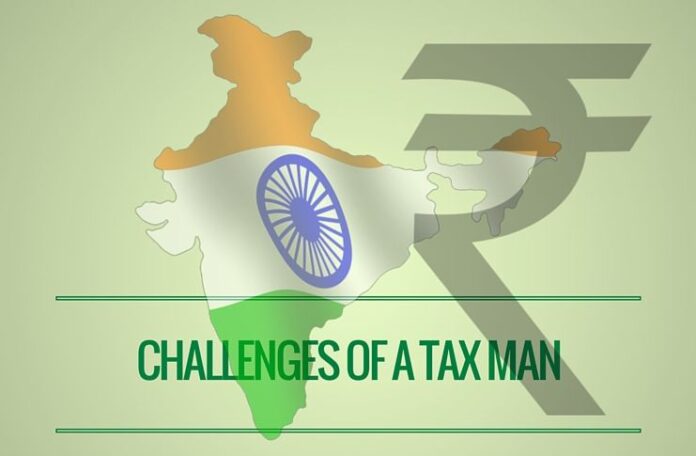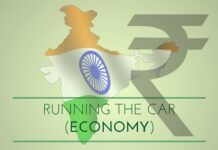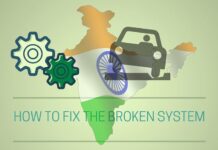
This is Part 2 of the series on Broken System and how to fix it, by Shubhendu Pathak. In Part 1, Pathak talks about Anil Chowdhary.
Lalit Mohan Jindal
Lalit Mohan Jindal is my batch mate from IIT Delhi. He passed the civil service exam after his graduation and is now an IRS officer in Delhi. In the room of Aravali hostel, we frequently discussed national and local political issues. “I want to bring about a change” was a common theme of his answers when he was asked about his motivation to prepare for the civil service exam. In our last two meetings, I have seen his frustration growing.
…generous creditors, who the defaulters sometime claim they met under at a local tea-shop!
In our latest meeting, we had a chance to discuss his work in the IRS in detail. Lalit is working on an online system that will enable tracking of pending cases of Income Tax violations easier. “Officers keep rotating, and the new officer who takes charge loses track of the cases, pending in courts, that were filed by the preceding officer(s). Courts are overburdened and there is a lot of backlog”, he says. “This gives tax defaulters an upper hand when a case goes to court. Besides, there are certain loopholes in the current law that benefit the defaulters who show income as interest-free loans; tax officers like me keep looking for those generous creditors, who the defaulters sometime claim they met at a local tea-shop.”
The first limitation faced by Lalit is almost identical to the one faced by Anil. Both have an insufficient supply of engine oil. The second limitation is a bit different. While Anil needed a functional police, Lalit needs laws with fewer loopholes. The engine oil that Lalit has access to is of low quality and does not have the required additives.
We cannot hold Lalit responsible for the same reasons we could not hold Anil responsible. Lalit cannot produce engine oil. So he does what he can do in his capacity as an IRS officer. Lalit is pursuing a bachelors degree in law (LLB) from Delhi University to be able to file cases that make it easier for the courts to adjudicate; so as to make the best use of the limited supply of low-quality engine oil he has. But is that an efficient solution? That seems to go against the premise of a modern economy, i. e. specialization of labor. Wouldn’t it be more effective, if both Lalit and Anil had access to a resourceful judiciary that resolves conflicts efficiently?
Our political leaders and bureaucrats have, over the years, come up with different ways to push, pull and roll the car Lalit is struggling with. The voluntary disclosure schemes launched by several governments have created a moral hazard and made Lalit’s job even more difficult. In trying to roll the car, they have scratched it all over. Some governments have even come on television to verbally threaten to punish the tax violators. All these are anything but ways to start the car.
[Side Note: I should point out, that this article is not in support of income tax. Income tax is a menace and should be abolished. I am only using Lalit’s experience as an example to show the vital role of engine oil.]
- Solution to Kashmir: A Lesson From The Prairies, the Pampas and the Kashyaps - February 12, 2019
- Kartavya,Adhikaar And Skill. A Worthy recipient of Skill India Scheme? - October 16, 2017
- Demonetization Has Opened A Window Of Opportunity For Modi - December 21, 2016











Nicely interpreted…there are a few things to be taken care of..
1) Government schemes proper implementation…which should benefit the common & the poor people.. creating a healthy work environment & work culture..
2) Political corruption must reach 0 value..with a minimum educational qualification to fight for the post of Representatives.
3) Caste based reservation policy to be removed as it itself breeds inefficiency into the system from all spheres… instead reservation should apply to meritorious financially backwards.
4) The benefits of the Representatives should be restricted
only for the years of service….which in turn will help our serious drain of finance to stop. ..hence lesser tax imposition on common people..thus getting more people
Within the tax circle…this will built our coffers of the govt. stronger .
We hope for a better tomorrow..
Good well presented article.Engine oil analogy is refreshing.Complete overhaul,that includes mandatory retirement of allmost everyone both in private&public sector above 45,as a one time measure,i would call emtying the old black engineoil.Inducing new fresh faces in those vacant spots is like new oil.Mandatory performance based job security is like adding filter to engine oil compartment. This sounds little crazy&radical.But in country like India where system is so irreparable,radical overhaul might be worth it.Secondly,completely abolishing caste recognition by govt& sealing it with merit,skill based university ,job selection would make sure to keep the future engine oil efficient, clean.I would go a step ahead& say only reason why indian engine oil is non functional is CASTE BASED QUOTA SYSTEM STARTING AT EDUCATIONAL INSTITUTIONS DOWN TO EMPLOYMENT. This is the reason for poor engine oil in the Indian system.If this root cause is not fixed,I don’t have any doubts about Failing system.